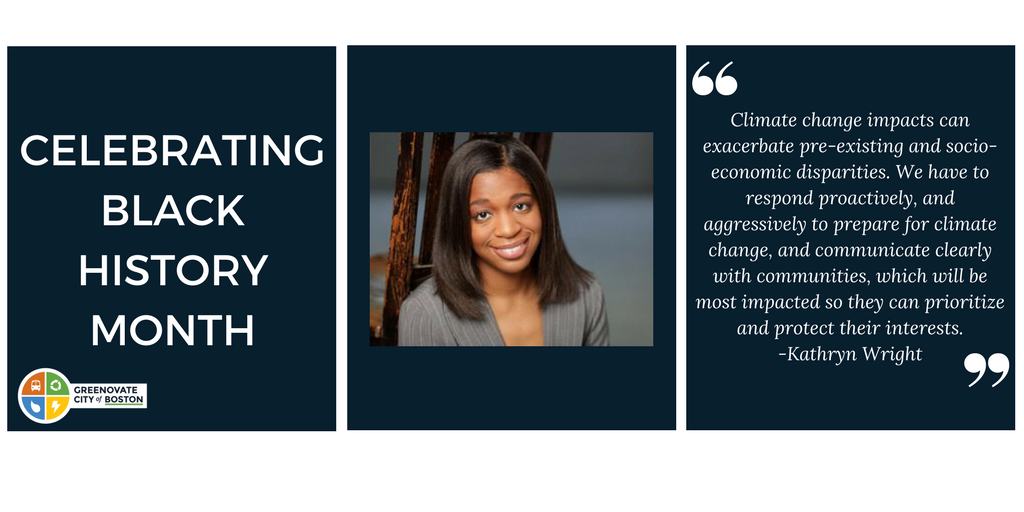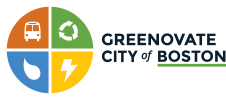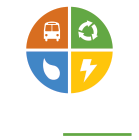
Black History Month is not quite over! Throughout February Greenovate has featured black environmental leaders from Boston that share our commitment to climate action, and to making Boston a thriving, healthy, and innovative city. This week our blog post comes from our very own Environment, Energy, and Open Space Chief, Austin Blackmon. Austin is a resident of the West End and the Environment, Energy, and Open Space Chief. Read more about Austin and the advice he received from Senator Obama.
What is your background, and how did you come to work in the field?
Most of my experience comes from Professional Services in Consulting and Finance. Prior to working for the City, I was Interim Head of Project Finance for Terraverde Renewable Partners, a clean energy consulting firm. I also worked at Booz Allen Hamilton in its Strategy and Operations group, Wells Fargo Securities in Energy Investment Banking, C12 Energy and advising the U.S. Renewables Group. Although the first few years of my life were in the Great Lakes region, I’ve lived in New England for over 12 years, attending College and Business school at Harvard.
What organization do you currently work for?
I work for Mayor Walsh as Boston’s Chief of Environment, Energy and Open Space. There, I lead the Environment, Parks and Recreation, and Inspectional Services departments, spearheading the implementation of Boston’s Climate Action Plan and working to keep Boston a national leader in energy policy and open space.
What inspired you to pursue your career?
It’s a cheesy answer, but to be candid, it was Barack Obama. I interned in his Senate Office in 2006 and got his advice on areas where I could make the most impact in my career. He suggested Energy, Education and National Security. I took those to heart, exploring each early in my career before developing a passion for energy and sustainability.
What do you believe is the most pressing environmental or climate issue of our time?
Honestly, the biggest challenge is financing climate solutions, whether that’s convincing a neighbor to buy LED lightbulbs for their house or the CFO of a Fortune 500 company to use renewable energy that costs less. Even when there’s a compelling cost savings case for sustainable solutions, adoption is still lagging. Technologies like LED, solar and wind are mature enough to provide predictable savings at any scale, so now the focus has to be on improving messaging to cost-driven decision makers, whether they are friends, family or coworkers.
Can you tell me about a specific time that your black identity provided unique insight to your work that wasn’t as obvious to people who weren’t black?
Last year, there was a healthy debate on how to encourage Bostonians to use more reusable bags. From a young age, I remember my parents telling me not to carry bags from one store to another and to always keep my receipts to prove I paid for what I had. It took me a while to understand that based on their experiences and fears, they were trying to protect me from altercations with store employees or even police. I know other African-American parents still have those fears and share similar advice with their children. To me, that made it clear that if we put any policy into place around reusable bags, it should have a substantial community engagement component – not only with parents and communities of color, but also with vendors and store employees to ensure fair treatment of everyone.
What advice would you give young people, especially black young adults, starting out in this field?
Network, Network, Network. Meet as many people as you can, both inside and outside your areas of interest and expertise. You will be surprised how helpful your connections will be by giving you frank advice when you need it or pointing you towards a new area of interest like Senator Obama did for me.
Also, have a theory about what 1) you’re good at, 2) enjoy doing and 3) creates impact you care about. That theory can help narrow career paths and identify training to get you there. Remember that it’s just a theory though. Use classes, internships and volunteer opportunities to test that theory, refine it or even start over. Change course as quickly as you can once you realize part of your theory needs to be adjusted.
What actions do you suggest people take today to get involved and make impact to act on climate and/or protect the environment?
Start with small steps. Use less heat and AC by adjusting your thermostat and turning it down when you’re not at home. Replace the light bulbs you use the most with LEDs. Try taking more energy efficient transportation. If you usually drive, try to carpool a few times a month. If you usually take public transportation, try biking or walking once a week.


Recent Comments